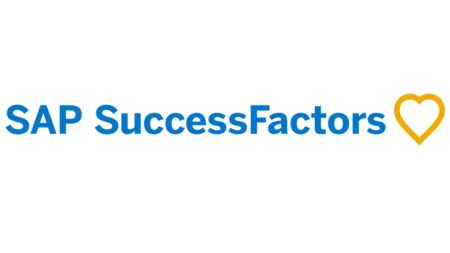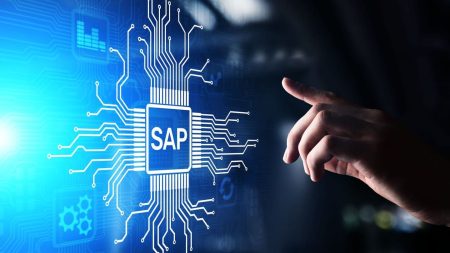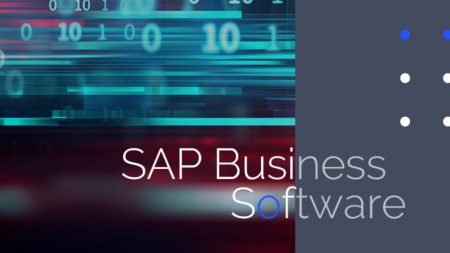What is ERP SAP? Enterprise Resource Planning software created by SAP SE integrates and oversees a company’s essential business functions, including finance, supply chain, human resources (HR), and sales. It is a holistic system aimed at optimizing operations, enhancing productivity, and delivering real-time insights into business performance. Additionally, the term may refer broadly to SAP’s range of ERP offerings, including the legacy SAP ERP (ECC) and the more recent SAP S/4HANA. ERP SAP stands as the maestro, orchestrating harmony and efficiency. But what exactly are ERP and SAP, and why do these systems hold such sway in the corporate world? ERP is the nerve center of any thriving organization. ERP systems function as that head chef in the kitchen, streamlining processes across various departments. An Enterprise Resource Planning system (SAP full form in ERP) integrates core business functions – finance, HR, manufacturing, supply chain, services, procurement, and others – into a single system. This integration facilitates data flow between these functions, eliminating silos and fostering a more collaborative environment.
SAP is the Titan of ERP
Now, where does SAP fit into this? SAP, short for Systems, Applications, and Products in Data Processing, is a titan in the ERP landscape. Founded in 1972 in Germany, SAP has grown into a global behemoth, boasting over 400,000 customers in more than 180 countries. Its ERP software, known as SAP ERP, has become synonymous with business efficiency.
What does ERP Stand for in SAP?
SAP ERP functions as a versatile tool in the realm of enterprise software. It offers a plethora of tools and modules, each designed to address specific business needs. Here are some of the standout features:
- Financial Management: ERP with SAP ensures that financial operations are as smooth as silk. From managing ledgers to tracking assets, it covers all bases. For instance, it can handle multiple currencies and tax systems, making it invaluable for global enterprises.
- Human Capital Management (HCM): People are the lifeblood of any organization. HCM module (like SAP SuccessFactors) helps manage employee data, payroll, recruitment, and performance. It’s like having a digital HR manager at your fingertips.
- Supply Chain Management (SCM): The supply chain is the backbone of any production-based business. SAP ERP optimizes supply chain operations, ensuring that everything from raw material procurement to product delivery runs like a well-oiled machine.
- Customer Relationship Management (CRM): Understanding and managing customer relationships is crucial. SAP ERP’s CRM module helps businesses keep their customers happy by managing sales, marketing, and service processes.
Real-World Impact of SAP
Let’s put things into perspective with some numbers. According to a 2021 survey by Panorama Consulting, 88% of organizations considered their ERP implementations successful. SAP, being a major player, contributes significantly to these success stories. For instance, Hershey’s, the global chocolate giant, leverages SAP ERP to streamline its operations, ensuring that its sweet treats reach your hands without a hitch.
Why Businesses Adore SAP ERP?
What makes SAP ERP the darling of enterprises worldwide? Here are a few reasons:
- Scalability: Whether you’re a fledgling startup or a Fortune 500 company, SAP ERP scales with your needs. It grows as you grow, ensuring that your business processes remain efficient.
- Customization: No two businesses are alike, and SAP ERP understands this. It offers extensive customization options, allowing companies to tailor the software to their unique needs.
- Integration: SAP ERP integrates seamlessly with other SAP products and third-party applications. This ensures a unified system where data flows effortlessly, providing a single source of truth.
How ERP SAP Collaborates with a Help Desk?
At a high level, SAP manages business processes, while the Help Desk manages service and support processes. Integration connects business operations with IT and service management (for example, Help Desk small business). In practical terms, this means:
- Users report issues via the Help Desk
- The Help Desk interacts with SAP data and processes
- Issues are resolved faster with full business context
- Changes and incidents are tracked end-to-end
Technical Integration Methods
ERP SAP integrates with Help Desk systems using:
- APIs (REST / SOAP)
- IDocs and RFCs
- Middleware (SAP PI/PO, SAP Integration Suite)
- Event-based triggers
- Prebuilt connectors (common with ServiceNow)
Integration and SAP Service Activation can be real-time or asynchronous, depending on requirements.
Business Benefits of SAP + Help Desk Collaboration
- Faster incident resolution for SAP users
- Reduced downtime of critical business processes
- Centralized support across all enterprise systems
- Improved compliance, auditability, and reporting
- Better user satisfaction and IT transparency
When Integration Is Especially Important
SAP + Help Desk collaboration is essential if:
- SAP is mission-critical (finance, supply chain, payroll)
- Hundreds or thousands of users depend on SAP daily
- You operate across regions or subsidiaries
- You must follow ITIL, ISO, or regulatory standards
Challenges and Considerations
However, it’s not all sunshine and rainbows. Implementing SAP ERP can be a Herculean task. It requires significant time, resources, and expertise. According to a study by Gartner, Enterprise Resource Planning implementation can take anywhere from 6 months to 2 years. Moreover, the cost can be prohibitive for smaller enterprises. Additionally, change management is a critical factor. Employees need to be trained to use the new system, and there might be resistance to change. Thus, businesses must invest in comprehensive training programs and change management strategies.
The Future of SAP ERP
As we look to the horizon, what does the future hold for SAP ERP? One word: innovation. SAP is at the forefront of integrating cutting-edge technologies into its ERP system. Here are some trends to watch:
- Artificial Intelligence (AI) and Machine Learning (ML): SAP ERP is increasingly leveraging AI and ML to provide predictive analytics, automate routine tasks, and enhance decision-making processes.
- Cloud Computing: The shift to the cloud is inevitable. SAP’s cloud-based ERP solutions offer flexibility, scalability, and cost savings, making them a compelling choice for modern businesses.
- Internet of Things (IoT): IoT integration allows SAP ERP to connect with smart devices, providing real-time data and insights. This is particularly valuable for industries like manufacturing and logistics.
So, in short, what is ERP SAP? It is a business backbone system. ERP SAP connects departments such as finance, HR, procurement, production, sales, and logistics so they all work from the same data, in real time. In modern business technology, SAP ERP stands as a beacon of efficiency and innovation. It’s the linchpin that holds diverse business processes together, ensuring that companies can operate like well-oiled machines. While the road to implementation might be challenging, the rewards are undeniable. SAP ERP is not just software; it’s a strategic asset that can propel businesses to new heights. So, the next time you enjoy a Hershey’s chocolate or ride in a BMW, remember that SAP ERP is the unsung hero behind the scenes, making it all possible. SAP Enterprise Resource Planning: the backbone of modern enterprise, the maestro of business operations, and the future of digital transformation. Embrace it, and watch your business soar.




